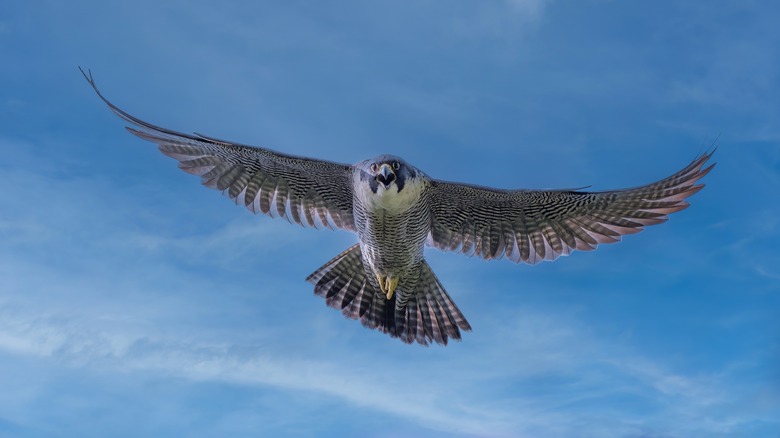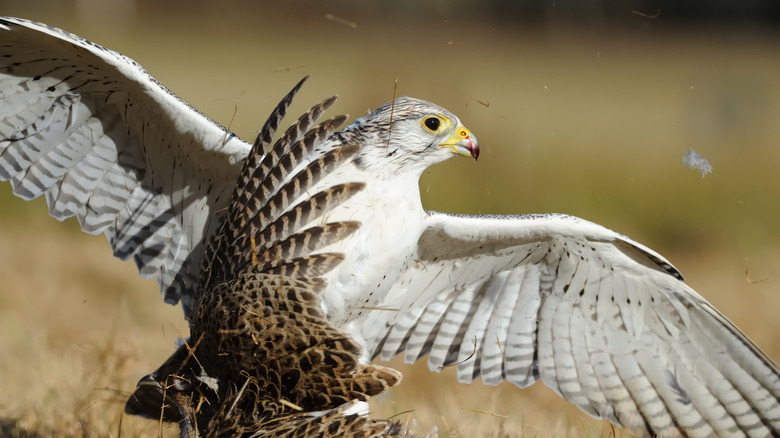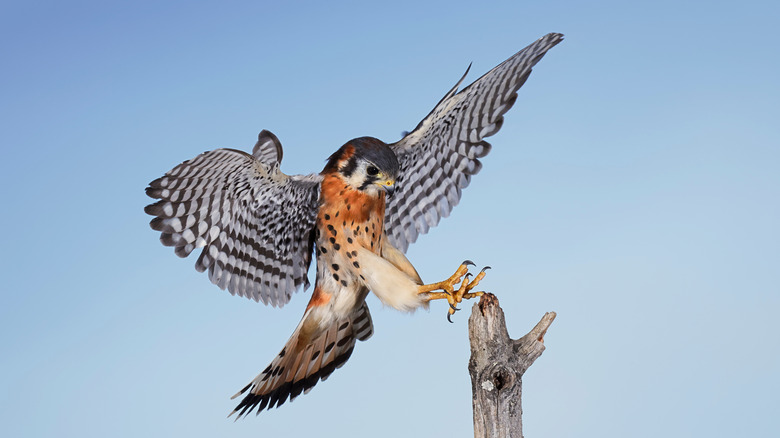Easy Tips To Attract Falcons To Your Yard (And The Benefit Of Doing So)
Predatory birds like falcons are fascinating creatures and remarkable to watch. While it can be devastating to see them attack smaller birds and mammals, they also benefit gardens and the environment. Not only do they often eat pests like mice, but they also can help prevent songbird overpopulation. By creating safe places for these birds to hunt, avoiding the use of rat poisons outdoors, and providing plenty of high spaces for falcons to perch and nest, you can help protect these beautiful birds and encourage them to make themselves at home in your yard.
Falcons can refer to any bird of the over 30 species of birds in the genus Falco. Some of the most common falcons in the United States include the American kestrel, the gyrfalcon, and, of course, the remarkably fast peregrine falcon. Falcons, like hawks, owls, and eagles, are considered raptors, a broad category that includes most predatory birds. Still, despite how similar falcons and hawks look, falcons are actually more closely related to parrots. Whether falcons and hawks are birds you don't want in your yard depends on your personal preference and comfort level with seeing them hunt smaller birds.
Benefits of attracting falcons to your yard
Falcons are definitely a beneficial bird you will want in your yard if you've been having issues with mice, rats, or other small mammals. These predatory birds are happy to snack on these rodents, leaving you with a neater yard. Sadly, 84% of deceased birds of prey tested in New York City had rat poison in their systems, something that can be fatal for these avians. So, to protect your feathered friends, avoid using pesticides and rodenticides in your yard, especially if you hope to keep attracting falcons.
Rodents and small mammals aren't the only things falcons eat. If you hate spiders, then these are birds that can help with that, too. Spiders, along with lizards, beetles, grasshoppers, and other insects, are also part of many falcons' diets. Considering the damage that beetles and grasshoppers can do to gardens, who wouldn't want to attract falcons to help deal with them?
How to attract and protect falcons
While falcons naturally nest on cliffs, they have adapted to cities and suburbs, and now many have nesting sites on bridges, buildings, and other structures. There's a good chance that falcons are already in your neighborhood. If your backyard is a thriving ecosystem with a variety of insects, mammals, and other birds, falcons may consider visiting as well. By growing native plant species and creating a habitat with plenty of biodiversity, your chance of having visits from birds of prey increases significantly.
Falcons and other raptors also appreciate a source of clean water. Whether this is a bird bath, a pond, or some other type of water feature, it not only increases your yard's biodiversity but can also give falcons a place to cool off. Tall trees to perch on are also sure to appeal to falcons and hawks. Just make sure to keep all of these appealing features several feet away from any glass windows to prevent collisions.


